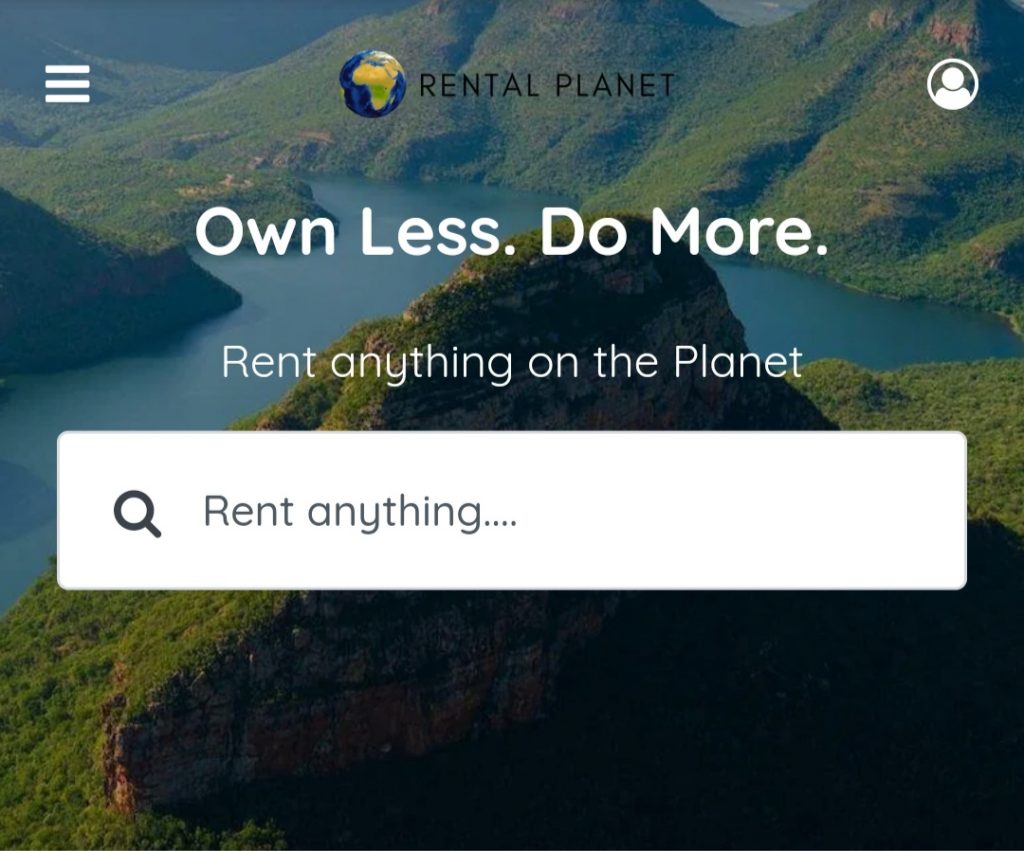Interview: Andrew Pfaff’s Startup, Rental Planet is Allowing South Africans to Rent Items with Ease
The rentals industry currently represents an estimated $160 billion annual market in Europe and is expected to grow further as the internet makes it easier to find items available for rent.
However, the rentals Industry is a relatively new concept in Africa. This is mainly because the industry includes an array of options as customer demands keep evolving. As a result, many companies in the rental segment are struggling to manage different rental pricing models.
In this interview with Founders Africa, Andrew Pfaff, a South African Rentals expert gives an indepth analysis of the rentals industry and how he is making a positive impact through his startup, Rental Planet, a rental marketplace that enables users to rent anything.

Tell us a little about yourself
I’m a 24 year old surfer from Cape Town. I’m big about the ocean, environment, health and spirituality. Since I can remember, I’ve always wanted to run my own business, one that would make a positive impact on the world we live in.
I studied Business Science: Finance and Accounts at UCT and have been grinding at startup life ever since.
Tell us about Rental Planet and the solutions you provide
Rental Planet is a rental marketplace. Think Airbnb for things or Takealot for rentals. It allows people to rent anything they want. From cameras to surfboards, apartments to cars, office equipment to construction equipment.
We effectively connect individuals that are looking to rent items to companies that rent them out.
When you came up with the idea of Rental Planet, what problem were you hoping to solve?
Funnily enough, I came up with the idea from going to AfrikaBurn. Every time I would buy something that I’d only end up using at Burn and then it would sit in the garage all year.
It was a serious waste of resources and effectively contributing to the waste problem we are facing. I thought instead of buying stuff, let’s come up with a solution so you can rent on demand.
So, that is the short term problem and solution. The long term problem is a cashflow one. The majority of people earn a monthly salary. So, it makes no sense to have to purchase items upfront.
Rather, rent them over a 3 year period like a phone contract. In the UK, it is already commonplace for wealthy people to rent laptops. Subscription based living is the future.
Tell us how the platform works
It’s very simple. You browse our 1000s of items for something you want to rent. Select dates and authorise payment. The supplier then accepts the request and gets in touch with you to arrange collection/ delivery.
What measures are in place to ensure the safety of lenders and those who want to rent items on the platform?
We run a realtime ID verification of each renter as well as taking an ID copy and selfie. Because we are primarily B2C, suppliers prefer a lower commission and to run their own verification system in addition to ours.
So, we do not take part in the rental agreement and are not responsible for any loss or damage, we simply help the supplier collect the necessary documentation.
What’s the greatest challenge you encountered when you started out?
The greatest challenge has been settling on a business model! We primarily started out as a peer-to-peer marketplace where you could rent a toolbox from your neighbour for example.
We even had an insurer lined up to cover the items. However, we saw a resistance from people offering their own items for rent. 15 pivots later and we’ve got to where we are today. That being said I’m sure we are not done pivoting!
How has the response been since launch?
We launched in a two phased approach. Phase one, we primarily focused on signing up suppliers. We currently have about 50 odd rental companies on board. At the end of February, we started Phase 2 and launched to customers.
Right before the lockdown, we were seeing requests coming through everyday, which was very exciting. There was a serious spike especially in home office and gym equipment. We had a JSE top 40 company request 150 laptops for their call centres.
The lockdown was seriously tough sales wise and early on we made the decision to cut all marketing spend and get our internal processes in line. As stressful as it was, it was an amazing time to focus and fine tune things we would never have had the time to look at. That being said, we’re helluva excited to see things open up.
The ecommerce industry in South Africa has quite a number of players, what’s the one thing that makes Rental Planet stand out from regular other ecommerce platforms?
The obvious difference is you don’t have to buy the stuff on our site. You can rent it monthly, daily, weekly or even hourly. It gives people financial freedom and is conducive to a lifestyle of owning less and doing more.
What are the future plans for Rental Planet?
We are in our proof of concept stage and are gearing towards our seed funding round. The lockdown preptime has resulted in spotting niches and having an incredibly robust rollout strategy to target them.
We also have dialed down our sales process and internal systems so that they are scalable for an expansion. It’s basically plug and play for future employees that come with growth and were excited to start raising our seed capital.
From your experience as an entrepreneur, what advice would you give young African entrepreneurs who are just starting out?
I’d say starting as early as possible. If I had the chance back then, I would have started in first year varsity, the earlier you start, the less obligations you have and the more risk you can take.
For those who have already started, I’d say talk about your idea with as many people as possible. It’s often a misconception that someone will steal the idea and your project will disappear from you. The earlier you talk about it the better and the advice you get is invaluable.




